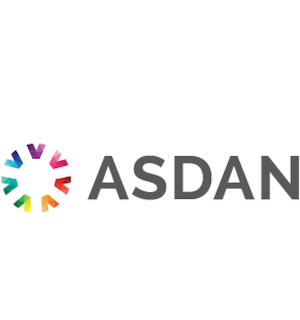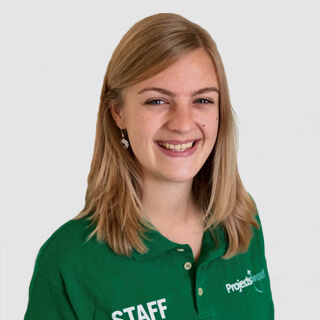My time in Fiji was genuinely life-changing. Before volunteering with the Projects Abroad Shark Conservation Program, I had earned 2 degrees and a graduate certificate to work as a Vestibular Rehab Therapist in Canada. Yet, I wasn't completely satisfied.
The clinical environment had been equal parts rewarding and challenging but I began to consider leaving patient-based healthcare and pursuing a more research-dominated field. I had taken some biology and environmental sciences courses at university and was interested in biodiversity and conservation.
This background, combined with a general love for sharks and marine life led me to find the position of Volunteer Research Assistant in the Shark Conservation Project in Fiji.
Arriving in Fiji

I have traveled on my own and to tropical destinations before, but I don't have a comparable experience to my time in Fiji. From the moment I stepped off the plane, I was greeted warmly and enthusiastically by everyone I met. Exiting the plane, the Fiji Airways staff said "Welcome home". I didn't know at the time how true that statement would feel.
I was picked up by a Projects Abroad staff member, Luisa, and brought to her house to stay the night. It was my first time staying with a host family in a foreign country and I felt so comfortable. She made an incredible meal and I also met a fellow volunteer from Japan.
The next morning we took a bus from Nadi to Pacific Harbour and arrived just before lunchtime. The other volunteers were out working so we had some time to explore the property and unpack a bit before meeting everyone. I quickly made wonderful friends from all over the world - UK, America, Sweden, Japan, Denmark, and a fellow Canadian.
We went for our induction around Arts Village, a plaza with a couple restaurants, cafes, stores/souvenir shops, post office, dive gear shop, and more. We spent a lot of our time split between Arts Village getting coffee and pizza for lunch after incredible morning dives or heading to Uprising Resort after our workday had ended to unwind with some volleyball and access the beachfront.
Both were within walking distance from where we stayed along with several market stalls that sold fresh produce. Our accommodation was beautiful and had a large common space and a pool where we spent some free time connecting with fellow volunteers.
Diving into Action

Learning to dive was something I had written on my bucket list, but didn't know where to begin. Having your dive course included and scheduled for you (as well as transportation to and from the dive shop and a packed lunch) was such an incredible benefit to the program.
I felt safe and confident throughout my dive course aided by the enthusiastic and knowledgeable dive instructors employed at the dive shop partnered with Projects Abroad, Beqa Adventure Divers.
We completed 2 survey dives each day on Sundays and Wednesdays to collect data on the indicator species found in Beqa Lagoon. Project leaders Mike or Mili would do a boat briefing reminding us of our safety rules, underwater hand signals, and roles for the survey dive.
After our first dive during the surface interval, we would all come together with our slates to discuss what we saw and input the information onto the datasheet. It was exciting to talk about the incredible marine life we had just seen and use tools such as T-sticks to measure sizes.
Volunteers also had the incredible opportunity to participate in shark dives with Beqa Adventure Divers. The BAD staff would go out in the mornings and do a bait dump to attract the sharks to the feeding arena. BAD has a 100% safety rating and it shows in their thoroughness and professionalism conducting these dives.
During the dive briefing, the staff outlines the exact depths and times at depth for the dive. During the dives, for safety, divers will be kneeling or laying on a flat ledge overlooking the arena and watching the feed. Some sharks take tuna heads from trained hand feeders right in front of you. Most of the sharks compete aerially for pieces of tuna from a floating bin that a staff member controls with chains in front of the divers.
It is unlike anything else in the world. Although I am new to diving, seasoned divers share this sentiment so I know it to be true. My biggest tip for potential volunteers is to really take a look at the shark identification materials back at the office. It's an amazing feeling to be able to identify sharks in real time during these dives.
The dives are conducted on Shark Reef Marine Reserve, Fiji's first marine reserve, established in 2014. A $25 levy is paid to Galoa village, who owns the reef, for its protection and to supplement income to the locals who used to fish there.
Reforestation

Another important part of the project was Mangrove Mondays where we would contribute to mangrove restoration efforts in Fiji and assist with neutralizing carbon emissions.
We had lots of varying tasks for our mangrove days. We would go out to a nearby mangrove forest and collect propagules/seedlings to bring back to our nursery. At the nursery behind our accommodation, we would plant the mangrove propagules and maintain the area by weeding, watering, and tilling the soil when needed.
We also participated in a mangrove experiment to determine the ideal level of salinity in various types of soil for optimal mangrove growth. We helped collect different growing mediums such as regular soil, soil mixed with seaweed, sand, stone and sand, and a mix of all components.
We planted red mangrove seedlings in rows of hybrids and spotted/samoan and then measured and recorded growth rates. Finally, when our propagules in the nursery were ready, we planted the young trees back into the wild.
Cultural Immersion
I absolutely loved our culture days, another integral aspect of the project. We learned about traditional beliefs such as the story of Dakuwaqa (octopus), and important parts of Fijian culture such as fire-dancing (which we were lucky enough to see at Uprising). Most commonly, we would go into nearby villages and be given a tour by the locals who lived there.
We had kava ceremonies, learned basket and fan weaving, and had traditional lunches. We also had the opportunity to trek to a waterfall led by local guides and participate in some dancing and singing while at a fundraiser for children's school supplies.
We also learned about our fellow volunteers' cultures and backgrounds and shared our own through a food exchange where we all cooked our own traditional food together. These activities had several impromptu Fijian language lessons in which I learned common words and phrases that helped me integrate further into the Fijian culture.
Other Activities

We also completed a number of other activities, including:
- Studying for the fish identification test
- Practising our underwater signals
- Data entry of indicator species and species of interest
- Learning about survey diving and the importance of mangroves and corals
- Studying shark ecology and behaviour
- Watching informative documentaries about ecology and conservation
- Having discussions
- Doing shark identification
- Beach clean-ups
- Working in the sustainability greenhouse
- Contributing to the program through individual projects.
My projects included creating an informative directory of common types of corals found in Beqa Lagoon and updating the materials for the Shark ID by creating cue cards of sharks seen in 2022.
Volunteering with the shark conservation project in Fiji exceeded my expectations. I contributed positively to the environment through mangrove planting, ensuring my trip was carbon-neutral after just one day of planting.
I developed genuine passions for diving, biodiversity, marine conservation, and shark ecology that will shape my future career and the rest of my life as I continue to pursue this field. I learned and appreciated Fijian culture and language, and made lifelong friends.
I completely recommend this program to anyone interested in sharks, the environment, research, and conservation to consider this program. It might just change your life.
This is a personal account of one volunteer’s experience on the project and is a snapshot in time. Your experience may be different, as our projects are constantly adapting to local needs and building on accomplishments. Seasonal weather changes can also have a big impact. To find out more about what you can expect from this project we encourage you to speak to one of our friendly staff.
Our accreditations


















